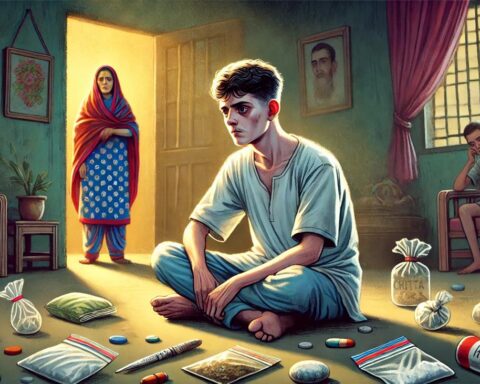New Delhi/ TNF
Pharma Scandal | In a shocking revelation, the Central Drugs Standard Control Organisation (CDSCO) has flagged 53 widely used medicines, including essential antibiotics and vitamins, for failing quality tests. These medications, which are produced by major pharmaceutical companies like Hetero Drugs, Alkem Laboratories, and Hindustan Antibiotics Limited (HAL), are used to treat common conditions such as diabetes, hypertension, anxiety, and respiratory issues.
Among the drugs that failed the quality test are several well-known names, including Paracetamol, Clonazepam (used for seizures and anxiety), Diclofenac (a painkiller), Ambroxol (for respiratory illnesses), and Fluconazole (an anti-fungal). Even daily supplements like calcium and vitamin D3 tablets, which are commonly prescribed to people with deficiencies, were found to be substandard.
The list of defective drugs also includes essential medications for digestive infections and chronic conditions. One such drug, Metronidazole, which is used to treat gastrointestinal infections, failed the quality check. Produced by Hindustan Antibiotics Limited, the drug is commonly prescribed for bacterial infections and is widely distributed in India. Similarly, Torrent Pharmaceuticals’ Shelcal tablets, a popular calcium supplement, did not meet the required standards during the inspection.
Counterfeit Medicines Flooding the Market?
Interestingly, out of the 53 drugs that were tested, only 48 were included in the final list. This is because five pharmaceutical companies claimed that the failed drugs bearing their brand names were actually counterfeit products being sold in the market. As a result, CDSCO removed these five medicines from the blacklist.
This raises concerns about the increasing prevalence of fake medicines in the Indian market, posing significant risks to public health. Fake or substandard drugs not only fail to treat the intended illness but can also cause harmful side effects, compounding health problems for patients.
Government’s Crackdown on FDC Drugs
This revelation comes just weeks after the Indian government imposed a ban on 156 Fixed Dose Combination (FDC) drugs in August 2024. FDC drugs, commonly referred to as “cocktail drugs,” combine two or more active ingredients into a single pill. These are often prescribed for fever, colds, pain relief, and as multivitamins.
The ban was recommended by the Drugs Technical Advisory Board, which concluded that the ingredients in many FDC drugs had no medical justification and posed significant risks to human health. Consequently, the production, consumption, and distribution of these drugs were halted across the country.
Among the banned drugs were those containing enzymes such as Amylase, Protease, and Bromelain, used for digestion, as well as medications for hair treatment, skincare, and anti-allergies. The government has assured that alternative medicines for these conditions remain available in the market.
Rajasthan’s Free Drug Scheme Faces Setback
Earlier this year, another alarming case emerged from Rajasthan, where 10 drugs supplied under the state’s “Chief Minister’s Free Medicine Scheme” failed quality tests. The Rajasthan Medical Services Corporation (RMSC) halted the supply of these drugs, which included tablets for fungal infections, malaria injections, eye drops, and asthma medications. These drugs were supplied to government hospitals under the scheme aimed at providing free medication to the state’s population.
The Bigger Picture
These developments raise serious questions about the quality control mechanisms in place for pharmaceuticals in India. While CDSCO’s efforts to identify and ban substandard drugs are commendable, the issue of counterfeit medications and the presence of unsafe drugs in government-backed health programs highlight significant gaps in the drug regulatory system.
As the government and regulatory bodies continue their crackdown on substandard and dangerous medications, it’s essential for patients to be more cautious about the medicines they consume. The recurring failure of quality control tests underscores the need for stricter enforcement and more robust surveillance to ensure that the drugs available in the Indian market are safe, effective, and of the highest standard.
With public health at stake, this latest revelation serves as a stark reminder that more needs to be done to safeguard consumers from the dangers of unsafe medicines.













